(A Webinar Paper Presented by Amb. Miri Timnan Nyantau (M.T.N), on the 25th May, 2025 organized by Tarok University of Jos Alumni)
Abstract:
This paper quizzes the prevailing narratives of mass killings in Plateau State based on the empirical evidences that abound with a view to leveraging a perspective that highlights its contemporary socio-contextual complexities. This paper adopted a mixed methodology that appropriates field, desk and documentary evidence citing how ancestral communities have been renamed and most importantly, the coordinated pattern of attacks and the mode of operation of the killers. This paper views the mass killing going on in Plateau State as a strategy and not random acts of violence, but rather a systematic campaign to drive out the indigenous population and seize their land. The innocent and peace-loving indigenes, like animals, are slaughtered in their sleep by the Fulani herdsmen without justification. The attacks are often carried out with military precision, with entire villages being razed to the ground and their inhabitants slaughtered. Survivors of the attacks report that the perpetrators are well-armed and well-organized, leading to suspicions that they are being backed by powerful interests with a vested interest in acquiring the land. In addition to the foregoing, the paper is broadly divided into five sections as follows: conceptual and methodological thrust, Overview of Violence in Plateau State, Key Figures In The Plateau Mass Killings, Nature of the So-called Communal Clash in the State (targeting of specific ethnic groups), Records of Killings in the State, Renaming of ancestral lands to Hausa-Fulani names, conclusion and recommendations.
Introduction:
Plateau State blessed with rich arable land has, for the over past two decades been a hotbed of ethnic and religious tensions, with the mass killings of predominantly Christian farmers by the Muslim Fulani herdsmen being a common occurrence. These tragic killings are often portrayed in the media as simply a result of competition for resources and historical grievances between the two groups. However, the recent spate of mass killings in the State suggests that there is a more sinister motive at play. The killings are a calculated evil campaign of ethnic cleansing and land grabbing aimed at displacing communities and altering the demographic landscape of the state.
The history and story of Plateau State has been that of peace and tourism. It was for these two traits that the Europeans found it irresistible to stay away from thereby residing in the state during the colonial era. The people are hospitable and accommodating, welcoming visitors without discrimination against tribe or religion.
Blessed by nature and fortune with exceptional landscapes and vegetation, these natural endowments became the target of the settlers Plateau people had accommodated without resentment.
However, the quest to forcefully take over these endowments birthed what the media has subjectively masked communal clashes. The unanswered question that vehemently opposed the so-called ‘communal clash’ tag is: what is a communal clash? Who clashed with who over what? Is it the innocent Tarok people that were attacked without provoking anyone in 2001 or the Berom, Amo, Irigwe, Ron, Kulere, Mwaghavul people etc that are ambushed on their farms and homes; and are killed like chickens without hurting an ant be tagged ‘clash’? How does one justify the renaming of villages like Mahaga that was forcefully taken over from the Berom natives?
The perpetrators of mass killings have the motive, means and opportunity to commit the genocide – all three being necessary and none sufficient. Within the tripartite framework, mass killing is a contingent outcome of interaction between four figures: leaders, executors (together called perpetrators), targets and constrainers.
They implement their strategy by means of an organized, armed core group who willingly execute the plan. The opportunity arises when the targeted population is weak or defenseless and when constraining institutions and actors are absent or ineffective. Under these conditions, the dynamic of conflict reaches a tipping point, after which mass killing is suddenly more likely to occur. The argument is applied to Tarok people (2001-2002) where mass killing did not take place because of their resolute resistance to the perpetrators, and to Plateau North (2002-2025) where it happened and is still happening because of the people’s indifference.
Contextual Meaning Of Mass Killing:
To understand a topic, it is very important to understand the contextual meaning of the key words. According to Triveni Journal, “Mass Killings involve widespread, targeted killings, often against minority communities during communal riots, and reflect a horrific societal issue accentuated by collective beliefs, highlighting the brutal nature of these acts within a given context”.
Last updated on 23rd November, 2024, Triveni Journal emphasized that “Mass Killing is the horrific, collective killings that occur, portrayed satirically in the conjunction of societal beliefs. It is the widespread killing of individuals, particularly targeted towards the minority community during communal riots”.
Mass killing is also referred to the intentional and systematic killing of a large number of people, typically in a short time frame, often targeting specific groups based on ethnicity, religion, or political beliefs. These events are characterized by their brutality and the scale of human loss, reflecting broader issues such as genocide, ethnic cleansing, and political repression in the context of mass atrocities since 1945.
Historical Context:
North Central Nigeria is situated within the critical hotbed of Nigeria’s communal conflicts’ (henceforth also referred to as communal crises) axis. The region has, over the years, witnessed varying degrees and dimensions of ethno-communal incidents, often resulting in widespread violence and instability. Nasarawa State, since its creation has been relatively peaceful with clement weather.
However, since 2001, the state had to grapple with virulent incidences of communal conflict, especially in the various parts of its vast and isolated hinterlands like in Yelwa-Shendam, Gumshir-Dengi and Wase. What was initially wished away with the wave of a hand considering how peaceful the state has been later snowballed into a monster that has had a profound impact on the larger affected communities, leading to widespread fear and distrust among different ethnic groups. The killings have also raised questions about the ability of the Nigerian government to protect its citizens and maintain law and order. The failure of the government to address the root causes of the conflict and bring the perpetrators to justice has only deepened the sense of insecurity and instability in the region.
Expectedly, there exists a gamut of literature on communal conflict in North Central Nigeria (Best 2004; Gyuse and Ajene 2006; Blench and Dendo 2014; Adamu and Ben 2016; Alozieuwa 2016; Okoli and Nnabuine 2019). Whilst the existing studies have variously emphasized some crucial aspects of communal conflict in Plateau State, especially its general causes and impacts, there has not been much attempt to unapologetically call the mass killings in Plateau State by its name despite the glaring pattern the killings have taken
Overview of violence in Plateau State:
In 2001, the State woke up to religious violence in the State capital where many lives especially students were maimed with properties destroyed. This strange violence set the tone for a cycle of unprovoked attacks to come when in 2002, the Tarok people and indigenous Christians of Yelwa Shendam struggled to stay live in disbelief after they were attacked by the settlers’ they have graciously harboured and accommodated.
In March 2010 violence was executed by an armed group comprising members of the Fulani Ethnic Militias leaving over 400 people dead in coordinated night attacks on the villages of Dogo Nahawa, Ratsat and Zot. During this dastardly attack, entire families were killed by the attackers, who woke the villagers from their sleep with gunfire and shouting, before setting homes on fire and attacking men, women and children, including babies. Many suffered severe machete wounds, and several bodies were decapitated.
According to Marie-Therese Nanlong of Vanguard Newspaper, “the attacks on Dogo Nahawa, Ratsat and Zot essentially formed the blueprint for future militia attacks, which have occurred almost cyclically in states across central Nigeria, and which now occur in southern Nigeria”. She added that “The violence has also contributed to a proliferation of small arms and the surge lawlessness that is currently afflicting communities in the northwest. While violence in central states is ethno-religious in nature and involves land grabbing through forced displacement, areas in the northwest which are experiencing extortion and murder are largely Muslim farming communities of Hausa ethnicity, although the plight of the equally vulnerable minority Christian areas is eclipsed by the magnitude of attacks on the majority religious community.”
Since 2015 Nigeria has witnessed a spike in militia violence that has largely gone unchecked, Insecurity is now rampant throughout the nation. For example on 29 January 2024, two traditional rulers were killed in the southern state of Ekiti and a third escaped after their vehicles were intercepted by gunmen of Fulani ethnicity along the Oke-Ako road in Ikole Local Government Area (LGA), as they returned from a security meeting. Even the Federal Capital, Abuja, is no longer immune, as Fulani kidnappers inhabiting the forests surrounding Abuja attack neighbourhoods, break into homes and kidnap entire families, including non-Fulani Muslims.
According to the Civil Society Joint Action Group, Community of Practice Against Mass Atrocities and Nigeria Mourns, at least 2,423 people were killed in mass atrocity-related incidents and at least 1,872 persons were abducted in the eight months since President Tinubu took his oath of office: ‘We are particularly concerned about the upsurge in abductions, noting that at least 230 incidents, in most of which multiple victims were involved, occurred within the first 2 weeks of January 2024 alone.’
Key Figures In The Plateau Mass Killings:
Fulani Herdsmen (Executors):
One of the key figures in the Plateau mass killings is the Fulani herdsmen, who have been accused of carrying out attacks on farming communities in the State. The conflict between the herdsmen and farmers is not new, but in recent years, it has escalated to unprecedented levels, leading to the loss of thousands of innocent lives thereby qualifying it to be called Mass Killing. The herdsmen are often armed with sophisticated weapons, which has raised suspicions about external support and motives behind their actions. They kill with impunity, with the aim of occupying the ancestral lands of the natives the displaced
Leadership Incompetence (Leaders):
Another influential figure in the Plateau mass killings is the political elites, who have been accused of playing a role in fueling the conflict for their own political and economic gains. The elite have been accused of using the herdsmen as a tool to further their own interests, either by supporting them financially or turning a blind eye to their actions. This has created a sense of impunity among the herdsmen, who feel emboldened to carry out attacks without fear of repercussions.
The international community, Federal and State Governments, sadly, have largely failed to recognize the true nature of the Plateau mass killings, instead choosing to label them as communal clashes. This failure to acknowledge the underlying motives behind the attacks has allowed the perpetrators to continue their campaign of violence with impunity.
This is however, not an indictment on the whole political elites. The people and their representative have consistently mentioned the cases during legislative sessions. According to Sen Simon Mwadkwon, “Fulani attacking Plateau communities aren’t bandits, they are land-grabbers, chasing our people away and renaming our villages”. One passionate defender of the people is Hon Musa Dachung Bagos who has consistently spoken out against the nefarious activities of the herdsmen. This paper nevertheless opines that beyond the media wailing, political elites on the Plateau should have been more decisive and deliberate in halting the spate of killings
The Weakling Youths And Vulnerable Communities (Targets):
One of the key figures that has encouraged the mass killings on the Plateau is the docile youths. Youths who will rather sit and wait for attacks to happen and rush to social media to wail and lament.
The continued inactivity of the youths has seen the Fulani herdsmen killing without any resistance. This has created a sense of impunity among the herdsmen, who feel emboldened to carry out attacks without fear of repercussions.
The dispersed linear settlements are also soft targets for the herdsmen. Dispersed settlements coupled with lack of organized community vigilante make them willing lamps ready to be slaughtered by the nefarious herdsmen
Security Agencies (Constrainers):
The doubt on the efficiency, efficacy and readiness of the security agencies to tame the spate of killings is high among Plateau people who sense complicity by those that are empowered by the law to protect them.
For instance, the National President of Berom Youths Moulders (BYM), Barr Solomon Dalyop Mwantiri said “The quest for land grabbing and ethnic cleansing are responsible for this, as is the desire to have political penetration, among other factors. Why I said quest for land grabbing is because that is what is in vogue among the elements behind the attacks”.
He continued: “In Plateau alone, we have not less than 102 communities and villages that have been sacked and are currently under the occupation of the Fulani militias, who have infiltrated the state long before now. Also, this can be linked to ethnic cleansing, which is ravaging Plateau State today. People are being killed without any justification, just as we witnessed in recent times where over 200 people were killed in the Mangu Local Government area of the state, coupled with the recent attack in Riyom local government where over 20 people were killed”.
In casting aspersions on the security agencies, the Youth President was unequivocal “It wasn’t a surprise attack because we got local intelligence that the Fulani militias were coming to attack Rim, Jol, Kwi, Alle, and other neighboring villages. It was reported to the appropriate authorities. The attackers, however, struck a day after the information was released, and they came in large numbers”.
“It is an orchestrated plan to kill the people and scare the survivors away from their lands. So land grabbing cannot be separated from ethnic cleansing because once the people are uprooted, the land belongs to them. It is unfortunate that this kind of barbaric attack takes place in a country where there are laws to regulate people’s activities. But it seems like a compromise, or there is no political will to curtail the situation”
The Nature of Operations Of The Attackers: (Targeting A Specific Ethnic Group)
This paper interrogates the distinctive nature of operations of the attackers of Plateau people which is different from how terrorists operate. Terrorist by their modus operandi do not target a specific tribe neither do they settle in an area where they have displaced people.
The targeting of specific ethnic groups in the attacks suggests that there is a deliberate effort to cleanse the area of certain populations. The victims are often minority ethnic groups like Berom, Amo, Irigwe, Bajju, Ron, Kureler, Mwaghavul etc who have long been marginalized and discriminated against by the same Fulani that Plateau people willingly gave their lands to, to settle amongst them. Targeting these groups by the perpetrators shows clearly that not only are the perpetrators seeking to seize their land, but also to eradicate their presence in their ancestral lands.
As reported by Vanguard “While some non-indigenes have relocated, the indigenous people, uprooted from their ancestral lands have been the worst hit as they have no other place to call home. Local government areas like Bassa, Barkin Ladi, Jos North, Jos South, Bokkos, Riyom and others, have indigenous tribes roaming about while new faces have taken over their communities, hence at every ‘peace forum’, these tribes call for government’s assistance to get back their ancestral homes”.
The State Chairman, Youth Wing, Christian Association of Nigeria, Markus Kanda, raised alarm that over 100 communities have been grabbed from the natives saying, “… over 100 villages have been taken over by Fulanis, you can do your background checks; villages are attacked; houses are burnt, the occupants are either killed or displaced and the marauders go to these villages and occupy them; and the owners of those ancestral lands cannot go back there.” The coalition of ethnic groups in the state, Plateau Initiative for Development and Advancement of the Natives, PIDAN, at different times also raised concerns about the development.
In 2021, the Southern and Middle Belt Alliance (SaMBA) through its Spokesman, Rwang Pam raised the issue asking the then Governor Simon Lalong to “embark on immediate recovery of the 102 communities annexed by armed Fulani herdsmen in Plateau State from 2001 till date.”
Spokesman of SaMBA, Rwang Pam Jnr., said: “SaMBA is saddened by the development in Plateau State and is therefore throwing its full weight and total support for the petition submitted to the Plateau State Governor on 26th November, 2021 by the Emancipation Centre for Crisis Victims in Nigeria (ECCVN) and its collaborating associations of Atakar Development Association, Berom Educational and Cultural Organization (BECO), Irigwe Development Association (IDA) and Ron Kunlere Development Association (RKDA).
“The petition is anchored on the Plateau State Anti-Land Grabbing Law. A situation where aborigines and natives of Plateau State are sacked from their ancestral homes and ejected from IDP camps is morally disturbing, globally condemnable and totally unacceptable.
“It is therefore imperative for the state government under the leadership of Governor Simon Lalong to act as a matter of urgency by declaring a state of emergency on the recovery of these lands. The governor must issue an express order of evacuation of all illegal occupiers and users of lands, dams, ponds, streams, homes, and other properties because peace can only reign when the issue of justice is addressed by the state government and its agencies.”
Hon Musa Dachung Bagos also cried out that “The people are being killed while their lands are grabbed by non-state actor. Land grabbing is at the heart of the killings. Justice is the answer. Bringing the perpetrators to book is the answer…”
The forgoing tells the story of a calculated and well-orchestrated land grabbing strategy the killers have adopted and certainly not communal clash
Records of Killings in the State:
With the incessant nature of killings that has become the new normal, it is practically impossible for anyone to have accurate statistics of the records of killings. This is because as one struggles to update a record, more attacks in various villages are being carried out in coordinated manner.
However, a few statistics dating up to to 2021 is relied on. In Bachit District, 10 were killed, Riyom local government area, communities taken over are: Shong I (2012); Shong II (2012); Rakweng (2012); Dashugu (2012); DiyanHei (2012); Shonong (2014); Maseh (renamed Lugel) (2012); Kampwas (2012); Kasa (2012); Palang (2018); Nanja-Hei (2018); Kuk (2018); Zere (2012).
Renaming Of Ancestral Lands To Fulani Names:
After successfully executing the coordinated attacks on the ancestral owners of the land, the Fulani without hesitation rename the villages of the displaced people in their tribe. Examples like Fass, which has been renamed Tafawa; Guava, which was Dakas before now; and Dankum, which has been renamed Mahanga; that’s a terrorist enclave because that is where most of the attacks, not just in the Plateau but the entire Middle Belt, are being coordinated. Also, places like Shonon and Shau have been taken over by the Fulani Ethnic Militias.
SaMBA listed some communities taken over in the Irigwe Chiefdom of Bassa local government area and the year they were taken over as: Krunkwa (2015-2017); Rotsu (2015-2017); Nzhwego (2017-2018) Jiri (2017- 2018); Ri-Meli (2017-2018); Ri-Bakwa (2017-2018); Ri-Nju (2017-2018); Chuvoh (2017-2018); Nkienwhie (2017-2018); Nzwherenvi (2017- 2018). In Daffo, Bokkos local government area, they are Ganda (2018); Hotom Wereng, (2018); Fubok Mandung (2018); Fubok Faram (2018); Farandong Hai (2018); Morok (2018); Nghakudung (2018); Fangha (2018); Shilim (2018). In Riyom District, Riyom local government area, they are: Rotchun (Renamed Rafin Acha) (2001); Rankum village (renamed Mahanga) (2001); Darin (2013); Hywa (renamed Lugere) (2001); Fass (renamed Tafawa) (2001); Janda (20
These are some of the evidences this paper relied on to unapologetically call the coordinated attacks on Plateau people a strategy for land grabbing and ethnic cleansing.
Summary:
In concluding this discourse, this paper holds strongly that Plateau mass killings are not just a communal clash, but a complex and deeply rooted conflict driven by ethnic cleansing and land grabbing. The mass killings have had a profound impact on the affected communities, leading to widespread fear and distrust among the natives and Fulani people. The killings have also raised questions about the ability of the Nigerian government to protect its citizens and maintain law and order. The failure of the government to address the killings as coordinated attacks with the sole aim of land grabbing and ethnic cleansing raises doubts among the people on the political will of government to end the killings. Failing to bring the perpetrators to justice has only deepened the sense of insecurity and instability in the State.
In order to put an end to the bloodshed in Plateau State, it is essential that the true nature of the killings be recognized. The International Community must pressure the Nigerian government to take action against the perpetrators and ensure that justice is served for the victims. Only by addressing the root causes of the violence can we hope to prevent further atrocities and bring peace to the State once and for all. If the government had the willpower,, then the incidence of land grabbing would have been taken care of. Even though the constitution provides that everyone has the right to reside anywhere in the country. That is freedom of movement. There is also a provision on how to acquire land, but these militias have unfettered power as they arrogate to themselves without the consent and approval of the constituted authority.
Political elite in Nigeria, who have been accused of playing a role in fueling the conflict for their own political and economic gains must stop forthwith. The elite have been accused of using the herdsmen as a tool to further their own interests, either by supporting them financially or turning a blind eye to their actions.
In the aftermath of this sad reality of killings, international attention must be brought to the plight of the affected communities, leading to increased relief materials and healthcare.
Recommendations:
- Only the government has the right to acquire land compulsorily, and even at that, there must be adequate compensation by the government. In this case, the militias are not the government; they are elements that have connections with ISWAP from the north-east and north-west, and government must discharge its fundamental responsibility of safeguarding life and property to put a stop to ethnic cleansing and land grabbing
- Youths in the affected areas should form vigilante groups to watch over their boundaries both day and night. The youths must be prepared to die on the streets defending their land or be slaughtered on their beds like chicken.
- Affected communities must be returned to their ancestral homes
- Security agencies must be ruthless in dealing with perpetrators to win the confidence of the natives
Miri Timnan Nyantau is a UN-POLAC Mayor of Peace and the National President of Tarok Progressive Youth Association (TAPYA), the umbrella body of all Tarok Youth and is reachable via miritimnankoinonia@gmail.com



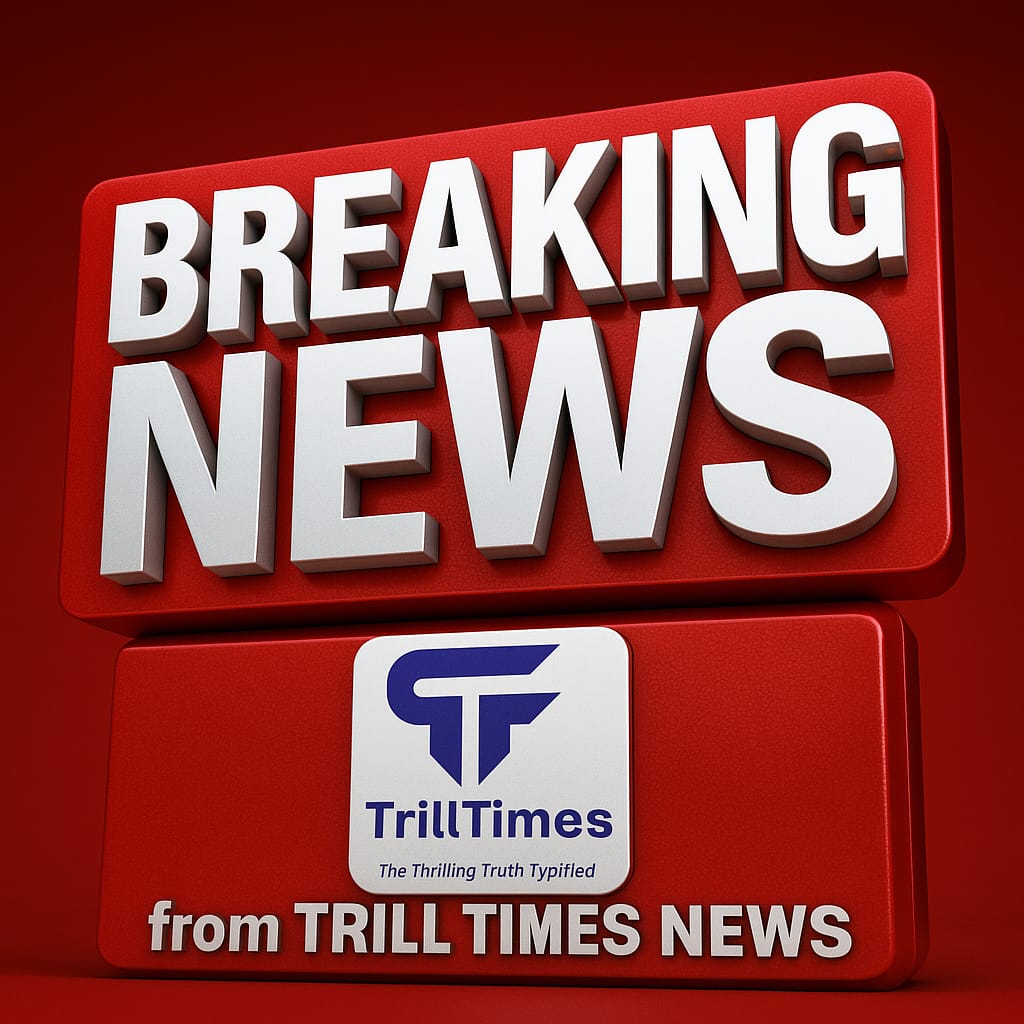

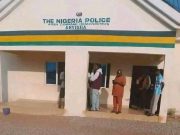
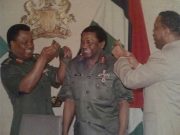
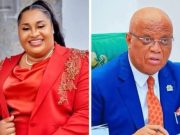
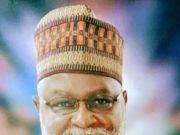
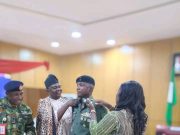
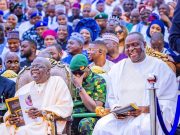
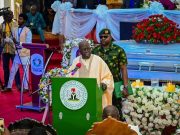
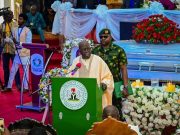
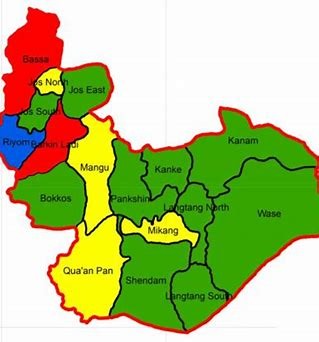
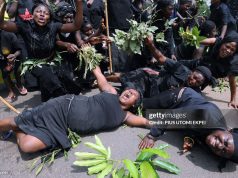
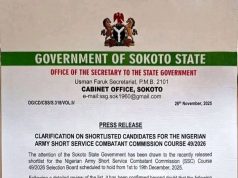
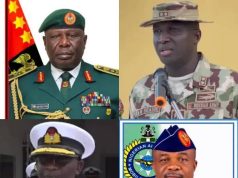







Looking good and beautiful ❤️😍
Nanji Banfa, you are good to go 👍💖💯
Good 👍 to go 💖💯
I strongly recommend and appreciate 🙏